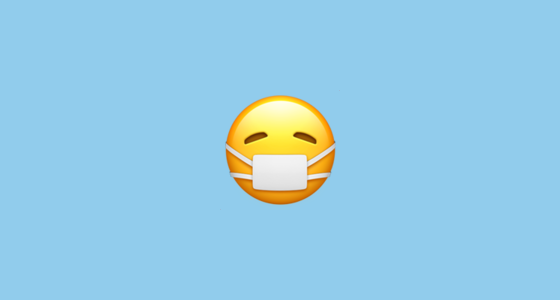Louis Strappazzon
In the last couple of weeks, life has been changing daily because of the Coronavirus Pandemic. On the 23rd March, the UK went into lockdown. So why should we stay at home? COVID-19, a viral infection that is a strain of the Coronavirus, originating in Wuhan, China in mid-November, differs to other coronavirus epidemics because even if it is not as deadly as other coronaviruses, like SARS (roughly 9.6% death rate) and MERS (34.4%), COVID-19 spreads very easily. COVID-19 has a death rate likely below 1% as thousands of cases are unreported but already it is present in at least 164 countries, over 130 more countries than SARS and MERS. SARS had below 2,500 cases, whilst COVID-19 has likely reached 400,000 cases. COVID-19 may not be as infectious as Swine Flu from 2009, but it is a lot more deadly as Swine Flu had a 0.02% death rate. A death rate around 1% and a high infectiousness makes COVID-19 the most dangerous virus our societies have experienced since the Spanish Flu over 100 years ago

Why does staying at home save lives? Social distancing, essentially meaning stay in your home when you can and have no social meetups, is vital to fighting this coronavirus because stopping its spread could mean hundreds of thousands less deaths. If we are not shopping, helping the vulnerable with theirs or playing a vital role, such as in the NHS or in supermarkets, we need to avoid as much social contact as possible and follow the measures.
Compared to the common flu, one person will spread COVID-19 to two or three people on average, whilst the average for flu is 1.2. Two thirds of cases in China were spread by people who did not know they had the disease because they were not showing COVID-19 symptoms (a dry continuous cough, a temperature above 38 Celsius and possibly loss of smell with other flu-like symptoms), a study shows. We do not know if we have it because some of us will be healthy carriers and the incubation period can last anywhere from a couple of days to 14 days. That is why if we do not distance ourselves, we could be a part of a chain that infects tens of thousands of people if everyone infects two to three people.
People above seventy and immunocompromised people (for example, cancer patients and diabetics) are most at danger of dying from COVID-19, but they will more likely die along with others if COVID-19 spreads at a rate which is too fast for the NHS to cope with. The UK only has 6.6 intensive care beds for every 100,000 people, a lot less than Italy’s 12.5 whose healthcare system is on the brink of collapsing due to the pandemic. We do not have enough ventilators to help critical condition patients to breathe at the current rate of expected cases. By staying at home, we are stopping the spread of coronavirus and helping the NHS, in turn saving lives.

The same goes for stockpiling, if we stockpile we take away supplies for people who need them the most as not everyone can afford to stockpile and production can only go so fast. That is why helping the vulnerable around us and staying calm contributes enormously to what needs to be a global and national effort against coronavirus.
The UK has now gone into lockdown. But it lost precious time by starting with a very strange ‘herd immunity’ and ‘mitigation’ strategy and when it moved to suppressing the virus, it was unclear on its advice. Information and clear communication save lives. Therefore, the British government – along with other tiptoeing governments – need to be as clear and strict as possible.
Another issue is economics. Rishi Sunak, the Chancellor of the Exchequer, surprised many by saying the government will pay 80% of employees’ wages. But more needs to be done for the self-employed and freelancers to make sure they can stay at home whilst being economically secure.

If we treasure our freedom, we must understand we need to sacrifice it for the time being to have it in the future. Our individual freedom and health depend on the people around us and vice-versa. Helping the vulnerable means being unselfish and not having that last pint with friends. The more we keep to these measures, the more likely they will last only a few months. Therefore, those who can must stay at home and those who want to, should volunteer and help the vulnerable. It is the best we can do for our heroic health-workers.

